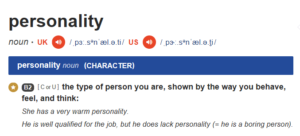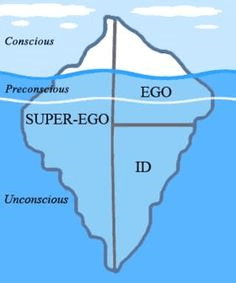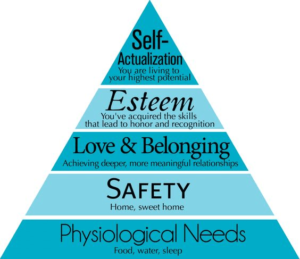11 Reasons Gaming is Healthy
11 Reasons Gaming is Healthy


-
Helps develop a sense of identity and characteristics

-
Improves motor skills, visual abilities, and hand-eye coordination

-
Keeps you happier and healthier when you’re old

-
Reduces stress and depression and generates positive feelings
If you are looking into socializing while gaming , you can look into cooperative games. This way you can create your own network of gaming friends. There are also games created particularly to help players learn to manage stress. With these games, you can apply the information or techniques given in the game in your life to cope with your daily stress. Most importantly, try to spend your free hours for the games you love and enjoy the most. It is the best solution to feel more positive and reduce your stress [5].

-
Improves decision making and helps to make faster decisions
Video games help a great deal on your decision-making process. Games act as an interactive training exercise together with traditional training methods. Furthermore, playing action video games trains people to make the right decisions faster. The researchers found that video game players develop a heightened sensitivity to what is going on around them. It improves a wide variety of general skills that can help with everyday activities like multitasking, driving, reading small print, keeping track of friends in a crowd, and navigating around town [6]. Studies also state that strategy games can be very useful to train your brain. This way, you can become agiler and improve strategic thinking at the same time.

-
Improves teamwork ability
Yes, you haven’t read it wrong! Online games, help you develop your teamwork ability, improve the sense of strategy, concentration and leadership skills [7]. Cooperative games, are perfect because they involve challenges that can be completed with other players. Working together to achieve a common goal with your friends can be comforting and empowering. Not only that you can game to spend time with your real-life friends, you can also start new friendships with people you have teamed up with.
How you are playing the game is more important than how much you are playing it or what you are playing to help you build this skill and your relationships. If you are playing competitive rather than cooperative gaming, it may not be very easy to improve your teamwork or leadership skills. Gaming is also a very good activity for couples, as it creates another activity to end boredom. It also helps to improve your relationship if you are trying to succeed a task together.

-
Supports self-confidence
Computer games help raise self-esteem. Some games are designed for this particular reason, but many other games can be useful too! Many games can help you realize your intelligence and abilities. For example, researchers from the Brock University found that adolescents who play sports video games show enhanced self-esteem and confidence and are more likely to get involved in athletics. The study’s authors attributed these gains to the safe environment sports video games provide children to experience success and to develop and master sports-related skills.
The games created to improve confidence is focused on thought patterns. They try to create a setting where the player can focus on positive thoughts such as smiley faces. This way, the players can realize the people who appreciate or support them in real life and try to not be worried about negative opinions. If you are one of these people struggling with a low self-esteem, you check out EyeSpy: The Matrix, Wham!, Grow Your Chi. [8]

-
Enhances problem-solving skills and creativity
Playing video games may help every person from any age group to develop problem-solving skills. They are especially effective for children in early ages. As reported in many types of research and also by gamers, puzzle games and role-playing games help people improve this ability by a lot. The reason behind how these games can achieve such a result underlines a very simple factor. Flexibility. Video games create great opportunities to practice flexible thinking and creative problem-solving.
Almost all the video games involve some degree of critical thinking, adaptability and the capacity to learn from one’s mistakes. These skills are all a part of the Flexibility thinking skill. For example, if you keep repeating the same mistakes, you will have a hard time progressing, not only in the game but also in real life. The flexibility helps the player to adapt to new game conditions or come up with different methods to achieve the aim in the game. There are many ways to practice these skills. For example, you can try to beat puzzle games with different approaches you haven’t used before, doing some ‘trial and error’ [9].

-
Improves concentration and attention
Games can be used as perfect tools to improve your concentration and attention, especially if you love multitasking! Although many people would consider playing video games as a single task, most games actually involve a lot of multitasking properties. Compared to other activities, games can help with concentration and attention better. Because, the multitasking activities involved in the game are linked with each other and are required to progress in these games. This way the player can focus and concentrate on each task but also must select the most important task required at that time.
Gaming can also help a lot to children with dyslexia. The research results show that dyslectic children who have tried games for a certain amount of time scored better on tests of visual attention. Their reading speed has increased without any loss in accuracy. Further, their gains exceeded the amount of spontaneous, developmental improvement that kids make over the course of a year [10].

-
Gaming can be great for inspiration
Anything can be an inspiration and so is gaming one of them. We have all heard many times about the tragic events and concerned people discussing the violent tendencies gaming could create for the gamers. It is true that in extreme cases, some games could result in these unwanted scenarios. Yet, proper games with limited play times definitely help more than harm for yourself and others. For example, a study that took real-time functional MRI scans of 57 people assigned to either play the game or watch it being played has found that those who played exhibited increased activity in the brain’s positive motivation circuits, while those who observed exhibited no increase in activity.
Gaming creates inspiration with a real sense of optimism in our abilities and our opportunities to get better and succeed. It also gives us more physical and mental energy to engage with difficult problems increases school or workplace productivity. You should check out Jane McGonigal’s speech, Gaming Can Make a Better World to learn more about this topic and be inspired as I am by it [11].

-
Video Games Can Help You Stay Fit
Games are no longer involving children and adults only sitting in front of a screen for endless hours and completing missions. If you think of it, computer games have come a long way since they were first invented. We have many gaming consoles that involve a physical aspect, like the Nintendo Wii. Games such as Just Dance, Guitar Hero, the Wii Fit and many more are creating perfect for staying fit. These kinds of games can help you build your muscles, improve posture, and keep your weight under control. They involve you moving around in the room a lot so be careful to create a wide enough area to play!
Moreover, even for people who don’t enjoy this kind of games, sports games could make them get interested in sports outside of the home and practice their skills in real life as well. Interestingly, unlike it is depicted in media, if you are focused on your game enough, your mind will be completely off the thought of snacks! But, of course, do not forget to eat and drink healthy after you are done with your gaming session. Furthermore, make sure your posture is proper while gaming, do not forget to take breaks and stretch from time to time!

Conclusion
Gaming can be a lot of fun, and there are a lot of positive things which it brings to your life. It can tell great stories, bring people together, and really improve a day. Gaming can be very beneficial for your health, relationships and surprisingly even for your wealth. Make sure you are doing your gaming in the proper way. Perhaps you will see that it is not limited to the 11 reasons identified above! Still, it is important to check out and optimize your gaming habits accordingly, as otherwise many negative effects of gaming can surface. Remember to eat healthy, spend time with your friends, engage in physical activities while gaming and have fun.
Do not forget, winning at life is winning the most important game of all!
Written by: Ece Karel
References
[1] Fraser, J., Gupta, R., & Rank, S. (2013). Youth identity, science learning, and gaming experiences, front-end research for the NSF funded leveling up a research project. (NewKnowledge Publication #NSF1.5152.03). New York: New Knowledge Organization Ltd
[2] Li, L., Chen, R., Chen, J. (2016). Playing Action Video Games Improves Visuomotor Control. Psychological Science, vol. 27, 8: pp. 1092-1108.
[3] Wolinsky, F., Weg, M., Howren, B., Jones, M., Dotson, M. (2013). A Randomized Controlled Trial of Cognitive Training Using a Visual Speed of Processing Intervention in Middle-Aged and Older Adults. https://doi.org/10.1371/journal.pone.0061624.
[4] Bailey, G., (2018). Playing video games is a key strategy for coping with stress, study finds. https://www.independent.co.uk/life-style/video-games-stress-playing-strategy-key-gamers-study-a8202541.html.
[5] Scott, E. (2018). How Video Games Relieve Stress. https://www.verywellmind.com/how-video-games-relieve-stress-4110349.
[6] Morewedge, C., Yoon, H., Scopelliti, I., Symborski, C, Korris, J, Kassam, K., (2015). Debiasing Decisions: Improved Decision Making With a Single Training Intervention. Policy Insights from the Behavioral and Brain Sciences, Vol 2, Issue 1, pp. 129 – 140. https://doi.org/10.1177/2372732215600886.
[7] Badatala, A., Leddo, J., Islam, A., Patel, K., Surapaneni, P. (2017). The effects of playing cooperative and competitive video games on teamwork and team performance. International Journal of Humanities and Social Science Research, Volume 2; Issue 12; December 2016; Page No. 24-28.
[8] McGill University (2004). http://selfesteemgames.mcgill.ca/research/index.htm
[9] Agents of Geek (2017). How Video Games Can Help to Improve Problem Solving and Creativity. https://www.agentsofgeek.com/2017/07/how-video-games-can-help-to-improve-problem-solving-and-creativity/.
[10] Cardoso-Leite, P., Kludt, R., Vignola, G., Ma, W. J., Green, C. S., & Bavelier, D. (2016). Technology consumption and cognitive control: Contrasting action video game experience with media multitasking. Attention, Perception and Psychophysics, 78(1), 218-241. doi:http://dx.doi.org.ezaccess.libraries.psu.edu/10.3758/s13414-015-0988-0.
[11] McGonigal, J. (2010). Gaming can make a better world. https://www.ted.com/talks/jane_mcgonigal_gaming_can_make_a_better_world.










